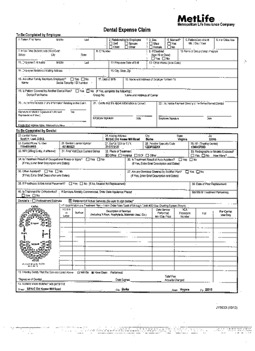PhormPhobic

Of course this ‘raw’ data will accrete and accumulate, eventually manifesting BIG results which will be queried (the perfect verb for this operation) to produce ‘answers’ or ‘insights’ or ... something.
There’s a science to form design which I firmly believe never once considered those of us who are form phobic, us who can find ambiguity in even the simplest characterization. We don’t even need to try. Give us a space inadequate to hold our full email address and we’ll just have to trail the damned thing down the margin or hyphenate into the space beneath the proper one. Lord knows how the interpreter of the form will translate what I leave behind, in the unlikely event that they’ll even be able to interpret my handwriting as I intended. That’s a bigger ‘if’ than BIG data ever presumes, I suspect.
I spent most of this week dreading a set of forms required by this dentist. I usually avoid anything even vaguely resembling a doctor visit because they force forms on me as a precondition to providing service. The typical form takes me several days to complete, and then, should The Muse review my entries, she’ll find several glaring (to her) errors in my interpretations of the requested information. I might more productively just let The Muse complete the forms, but she has her own interpretation disconnects. I’d rather just honestly misrepresent, and take the blame myself.
The world seems increasingly ruled by forms, none of which I can grok. I treat them like I treated the SAT test I took decades ago, random questions requiring random responses, of no real value or purpose to anyone. An ordeal. If they were interested in really knowing, and gaining consistent information, they might talk with me and interpret the ambiguity themselves. Put me in charge, and live with the consequences.
Problem is, policy gets set based upon the presumed validity of BIG data queries when many, perhaps most, are like me. We quite innocently gum up the works. Yes, I know my birthdate, but I’m not certain what you intend me to enter when you offer an unconstrained ‘date’ field. Who’s the insured? Well, the card I have says I am, but I know The Muse holds the policy. Nobody’s there to respond to my questions, so I spit into the wind and enter whatever seems to stick. Random responses to unintendedly random questions. I figure they get about what they deserve.
Joseph Schumpeter long ago critiqued economic analysis as being wholly dependent upon data provided by whom he characterized as ‘the watchmen.’ The watchmen, he cautioned, reported whatever they damned well pleased. They injected no sincere animosity into the system, just reported what might shed better light upon them or resolve essentially unanswerable questions to the presumed satisfaction of the remarkably ignorant asker.
I sleep tonight the dreamless sleep of someone who has survived yet another ordeal. I have completed the forms. I will not have to sweat through a clip-boarded set of questions in the dentist’s waiting room where the information to complete the form could never be or be accessed. I’ll hand in my completed paper, indifferent to the accuracy as interpreted by the dentist or his staff. I did my work, answering the unanswerable questions. I figure they will interpret them however they will anyway, regardless of what I intended.
©2014 by David A. Schmaltz - all rights reserved


